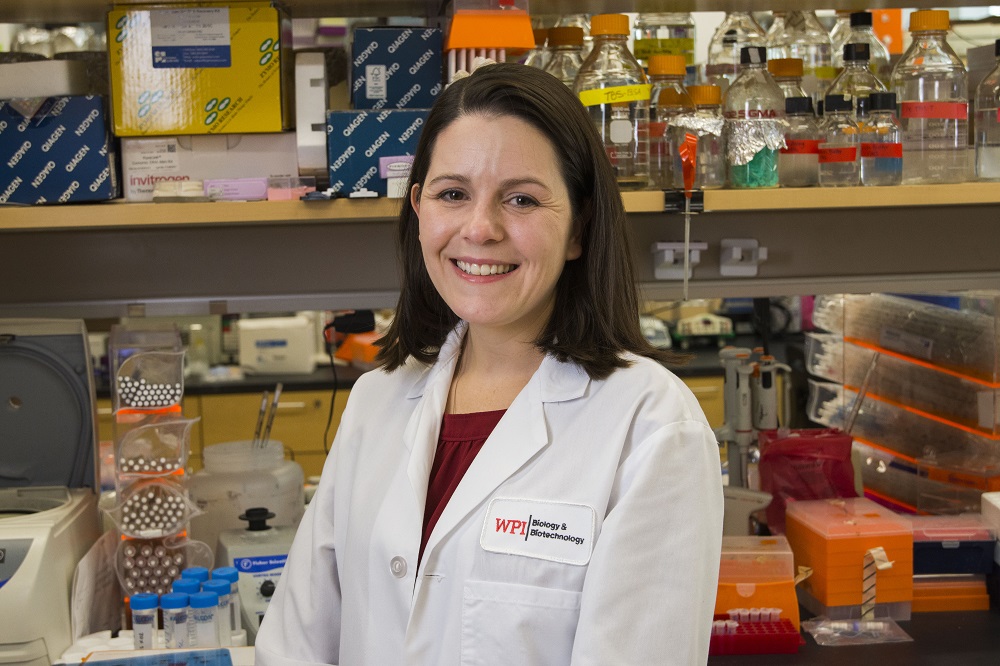A team of researchers led by Worcester Polytechnic Institute (WPI) Provost Wole Soboyejo has identified targeted drugs that reduced the sizes of hard-to-treat breast cancer tumors in mice without inducing the toxic side effects that are typically associated with conventional chemotherapy.
The researchers said in an article published in Scientific Reports that a molecular recognition unit attached to drugs specifically targeted “triple-negative” breast cancer tumors, which typically do not respond to targeted therapies. The targeted drugs eliminated or reduced the sizes of breast cancer tumors in laboratory experiments that were performed on mice. No toxic side effects were observed in the experiments.
“When injected into the bloodstream, only a small fraction of traditional chemotherapeutic drugs reaches tumors,” Soboyejo said. “It usually takes relatively high concentrations of conventional cancer drugs to have therapeutic effects on tumors. Hence, such concentrations are often toxic to other cells. In our case, the targeting drugs were more effective at shrinking and eliminating triple-negative breast tumors in mice. They also eliminated tumors without inducing toxicity.”
Breast cancer is the most commonly diagnosed cancer in women. Chemotherapy kills fast-growing tumor cells by flooding a patient’s body with potent drugs, but the treatment often produces toxic side effects. Targeted therapy aims to reduce side effects by delivering chemotherapeutic drugs directly to breast cancer tumor cells. The drugs seek out and bind to specific cellular structures known as receptors.
Three common receptors that are over-expressed on the surfaces of breast cancer tumor cells are HER2, a growth factor, as well as estrogen and progesterone hormones. Most breast cancer treatments target HER2 receptors. However, between 10% and 17% of all breast cancers lack HER2, estrogen, and progesterone receptors. These “triple-negative” breast cancers are more prevalent in younger women, African American women, and African women.
Soboyejo, inspired by a relative’s battle with breast cancer, previously studied luteinizing hormone-releasing hormone (LHRH) as a targeting mechanism to deliver magnetic nanoparticles to breast tumors. The targeted magnetic nanoparticles were found to improve the imaging of breast tumors in nude mice, a type of laboratory mouse. LHRH is a naturally occurring hormone in mammals. It is essential for reproduction.







